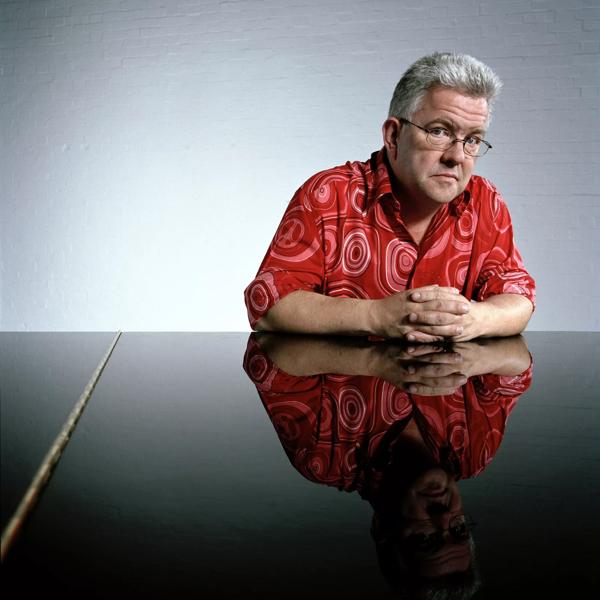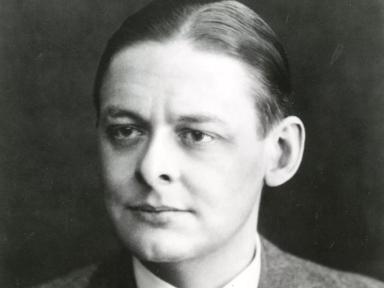Ian McMillan on poetry, Twitter, & the joy of early strolls

If the early bird catches the worm, what does the early poet catch?
If anyone should know the answer, it’s Ian McMillan; the poet, writer, broadcaster and playwright is a notorious early riser, tweeting wry observations from the streets of his home town before most of us have even reached out to grab five more minutes beneath the duvet.
Host of Radio 3’s The Verb, McMillan has found himself an ever-increasing audience through his use of Twitter, but as someone who has acted as poet-in-residence for both Humberside Police and the National Opera he’s no stranger to discovering new platforms and new opportunities for poetry.
In this interview with ‘the Bard of Barnsley’ find out why he still lives in the town he grew up, how Twitter helps make him think, and why he thinks everywhere should have a poet-in-residence.
You’re well known to many as host of Radio 3’s The Verb, something I know you’ve previously said you ‘like doing best’. What is it about that job that you love so much?
The thing about The Verb is that it’s like being invited to a language party every week. Thanks to my brilliant producers, I get to meet writers of all kinds and talk to them about their work, and I come out of each recording full of ideas and images and possibilities. Writing and performance and two very broad churches and we like to sing in them as often as we can.
The Verb seems to be that rarest of things - a show no-one has a bad word to say of. Why do you think it has come to be so universally loved?
Ah, if only that was true. Some people can’t stand it, mainly I guess because I’ve put my stamp on it so much that if you’re not keen on me then you won’t be keen on the show. A lot of people do like it though, which is lovely.
You’re quite a prolific tweeter, have you found that your profile on Twitter has helped you find new fans of your poetry? Or a new opportunity for poetry?
I love Twitter. My wife says I’m addicted, but I tweeted her the other day to tell her she was wrong. I like Twitter as a language game, one that makes me think hard and try to shape the words I’m using. And I think it’s expanding the opportunities for all kinds of networking and activism.
I’ve always found your ‘early stroll’ tweets a particular joy; what is it that continually compels you to start each day with an early walk?
I always wake up between 4.30 and 5am and a few years ago, when I was trying to get fitter and healthier, I decided to get up and go for a walk around the village. Then, after a while, and as an experiment, I thought I’d start tweeting about what I saw as a way of tuning up my brain as I tried to tune up my body. Now I take it as a personal challenge to always do the same stroll, but always to try and see something different, and I’m sure that’s helping my writing and thinking.
You travel a lot by train, but also have a great knack of making even the most mundane of train journeys seem poetically vibrant. Are you a man who sits back and takes in the world whilst travelling, or do you spend your journeys reading?
I try to multitask; I read, I listen to podcasts, I observe and I tweet. I do try to make each journey magical through tweeting, but it can be hard. We deserve much better trains and buses in this country.
You’ve been poet-in-residence for institutions as diverse as the English National Opera and Barnsley FC; despite their differences, is your approach to such roles still much the same? And how does a poet actually take residence?
I reckon everywhere should have a poet-in-residence, because the poet can use unofficial and creative language in a way that corporate communication can’t. I guess the approach is always the same; to try and see familiar things with new eyes and ears, and to encourage new people into the writing and reading of poems.
Your son Andrew is a very established poet and writer in his own right; was it a career you encouraged him into, or did he choose to follow in his father’s pen-marks?
I’ve got three children and I encouraged them all to be creative, but so far Andrew’s the only poet. I think I showed him by example that being a poet can be a job; I’ve always rushed around taking on all kinds of freelance jobs and I think I was able to show him that if you’re enthusiastic and you don’t mind early starts you can make a living in the creative industries.
Though you’ve enjoyed a prolific career in the arts you’ve remained true to your home town throughout. What is it that keeps you tied to Darfield?
I realise I’m unusual in that I live a few hundred yards from where I was born, but I’ve always been a big fan of the universal in the local and I like the fact that everybody knows me round here. And this place is always on the cusp of change so it’s a fascinating time to be in this part of the world.
You’re a regular visitor to the Southbank Centre as host of the annual TS Eliot Prize Readings, what do you enjoy about this particular night?
I love the fact that poetry takes centre stage in a huge venue, and it’s a time when poets can show the world that language can be a map through these ‘interesting’ times.
Are there any poets on this year’s shortlist you were particularly looking forward to hearing from?
All of ‘em!

Once again Ian joins us to host the TS Eliot Prize Readings on Sunday 9 January 2022. Join us to enjoy Ian in his full 3D majesty, and to hear readings from the 10 poets shortlisted for the prize.